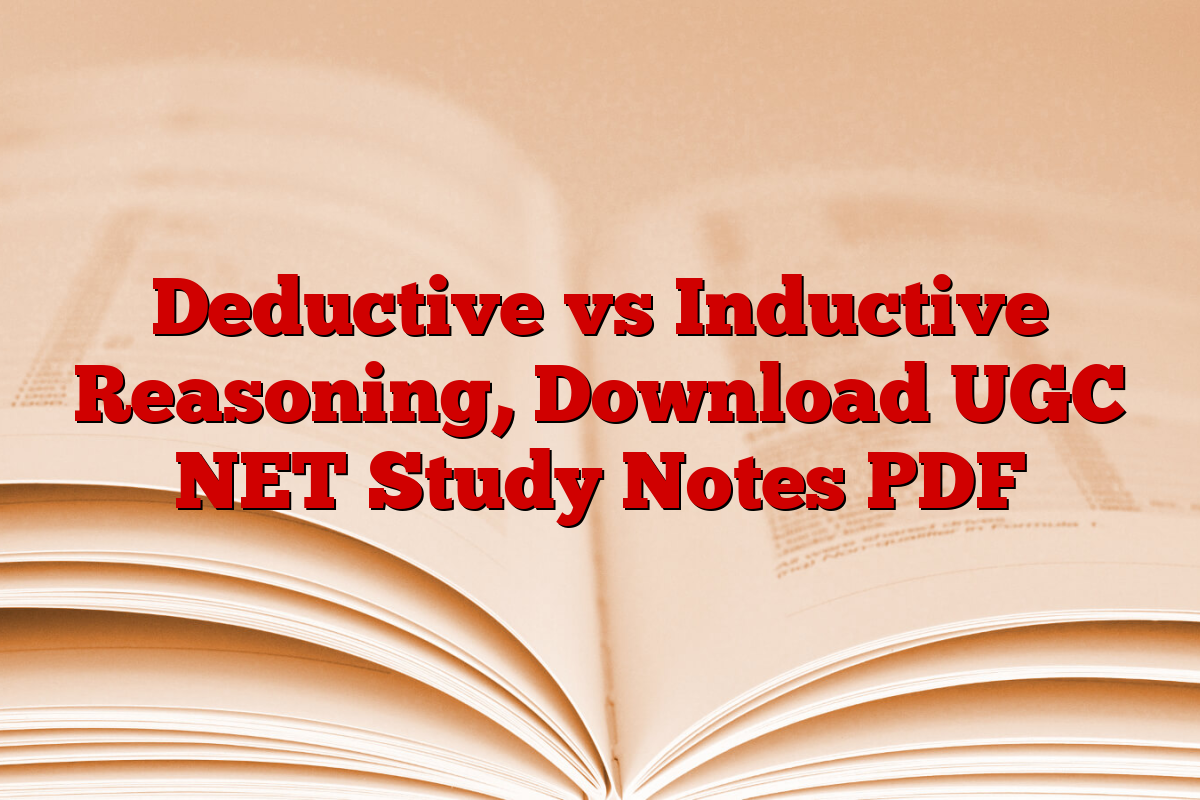Reasoning refers to the process that helps us go beyond the information because sometimes the complete information cannot be expressed by the given words. It is of two types: inductive and deductive. It becomes difficult for learners to differentiate between the two unless they understand the different terminologies and concepts associated with those terms. The topic of inductive and deductive reasoning is very important from the point of view of UGC NET exam. Read the article below to get in-depth information on the topic:
deductive reasoning
Deductive reasoning is based on the idea that facts that are true are used to prove that the conclusion is true. These truths are widely accepted norms, rules and principles. In deductive logic, the conclusion is taken to be absolutely true based on the logic of the premises. The main characteristics of deductive reasoning are:
- It starts from a general principle or rule and moves towards a confirmed specific conclusion.
- Here, we move from a broad concept to a specific point.
- Deductive reasoning starts from a pre-existing theory and leads to a conclusion based on it.
- It follows top to bottom approach hence it is called funnel approach
- In deductive logic the truth of the conclusion cannot be questioned
- If both the premises are true then the conclusion is undoubtedly true.
- This is in contrast to inductive reasoning where the process moves from a specific point to a more general conclusion.
- Example: If cup = plate, and plate = tea then cup = tea.
inductive reasoning
Inductive reasoning is concerned with the derivation of concepts and theories from specific observations. Here, specific premises provide evidence for the truth of the general conclusion. In this argument, we focus on the development of new knowledge.
Example:
Whenever there are clouds in the sky, it rains.
Therefore, it will rain today because the sky is cloudy.
The key features of this argument are:
- It follows a bottom-up or mountain climbing approach.
- It helps in generating new theories.
- It starts from a specific observation and finally draws a more general conclusion.
- The correctness of the conclusions is not guaranteed here. If the premises are true then the conclusion may or may not be true.
Examples of Deductive and Inductive Reasoning
| Example | deductive reasoning | inductive reasoning |
| 1 |
|
|
| 2 |
|
|
| explain | In deductive logic, if the premises are true then the conclusion is logically certain. Conclusions are drawn from general statements or principles. |
In inductive reasoning, conclusions are drawn based on patterns observed in specific examples. The conclusions are probabilistic rather than definitive, because they are based on a limited set of observations. |
inductive vs deductive reasoning
Following are the differences between deductive and inductive reasoning.
| basis of difference | deductive reasoning | inductive reasoning |
| knowledge creation | it does not create new knowledge | It provides new knowledge |
| type of approach | It is a downward process that leads to a specific conclusion. | It is an upward process leading to the formation of theories |
| process speed | It is a quick process because the principles and theories already exist. | This is a slow process because theory needs to be built |
| type of method | It follows the method of instruction. | It follows the method of discovery |
| scope | In this method the scope of activity is narrow | The scope of this approach is wide |
| level of dependence | This forces the researcher to rely on existing sources. | Here, the researcher is self-reliant and takes the initiative to generate new knowledge. |
In short, inductive and deductive reasoning are two types of logical reasoning. Both serve the purpose of research in different ways. On one hand, deductive reasoning helps in finding specific conclusions from existing knowledge and on the contrary inductive reasoning helps in creating new theories and principles from specific findings.
Download Deductive and Inductive Reasoning Notes PDF
sharing is Caring!
